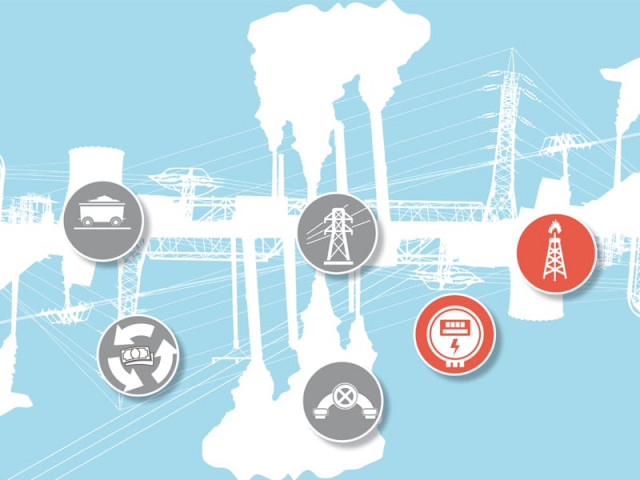Power production: Country needs to bank on cheaper fuel sources
Shifting Hub plant from oil to coal requires $1.2b investment .

“Expensive energy mix, circular debt and inefficiencies of distribution companies are the major reasons behind the current energy crisis in the country,” says Hub Power Company
Secretary Shamsul Islam. PHOTO: FILE
As the energy mix has become unsustainable due to sharply higher oil prices, Pakistan needs to shift its oil-fired power plants to coal in an attempt to bring down the high cost of electricity generation, says Hub Power Company Secretary Shamsul Islam.
“Expensive energy mix, circular debt and inefficiencies of distribution companies are the major reasons behind the current energy crisis in the country,” Islam said while talking to the media at the Hub Power Plant in Hub, Balochistan on Wednesday.
He pointed out that gas reserves had dwindled significantly, leading to a sharp decline in the share of gas in energy production from 52% in 2005 to 29% in 2014. This was another reason why the cost of power production has gone up over the years.

Responding to a question, he stressed that Hub Power could convert its plant from oil to coal but it would take two years and require an investment of $1.2 billion. However, the company would be able to recover this investment in just three years because it would save around $420 million a year after shifting to coal.
Highlighting the company’s growth plans, Islam said Hub Power could consider setting up a 2,400-megawatt coal-based plant, 2,400MW LNG-based combined cycle plant, 500MW independent hydroelectric power plant, 1,200MW mine-mouth power plant at Thar and 1,000MW solar or wind power plant.
Hub Power’s total production, including the contribution from two other plants in Punjab and Azad Jammu and Kashmir, stands at 1,601MW, which makes it Pakistan’s biggest IPP that has a share of around 10% in total power production.
Hub Power, which has an installed capacity of 1,292MW, was the first IPP that went for expansion in 2011 and set up a 225MW plant in Narowal. It also set up country’s first hydel IPP of 84MW, called Laraib Energy, in AJK, which came online in 2013.
“Current energy fuel mix is not sustainable and we need to use cheaper fuels for power generation to slash the overall cost of electricity,” Islam remarked.

Pakistan is producing 36% of electricity from oil, 29% each from gas and water and 5% from nuclear plants. Unlike the global practice of producing electricity through the cheapest energy sources, Pakistan is banking heavily on expensive oil to meet its energy needs.
Globally, 41% of electricity is produced with the help of coal, 21% through gas, 16% through hydel source, 13% through nuclear, 5% through oil and 3% through other renewable sources.
While Pakistan is far better in average global hydroelectric power production, it is way behind in coal power as it produces just 1% from this source. In contrast, India and China churn out 68% and 79% of electricity through coal respectively.
The gap between demand and supply of electricity in Pakistan has peaked to around 7,000 megawatts. Population growth, increased urbanisation and higher demand for luxury appliances have taken domestic power consumption to a staggering 46% of the total supply.
On the other hand, industry-installed power generation capacity has increased at the compound annual growth rate of 4.4% over the last four years.
According to Islam, because of deterioration in infrastructure and generation capacity, electricity deficiency would continue to remain in place over the medium term.
Pointing to the inefficient transmission and distribution system, he said it caused a loss of about 25% because of poor infrastructure, mismanagement and theft of electricity. These inefficiencies were costing the taxpayers Rs2.7 per unit over and above the cost of generation – averaging around Rs12 per unit. Power theft alone amounts to Rs140 billion annually.
Published in The Express Tribune, January 9th, 2014.
Like Business on Facebook, follow @TribuneBiz on Twitter to stay informed and join in the conversation.



















COMMENTS
Comments are moderated and generally will be posted if they are on-topic and not abusive.
For more information, please see our Comments FAQ